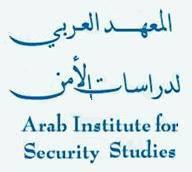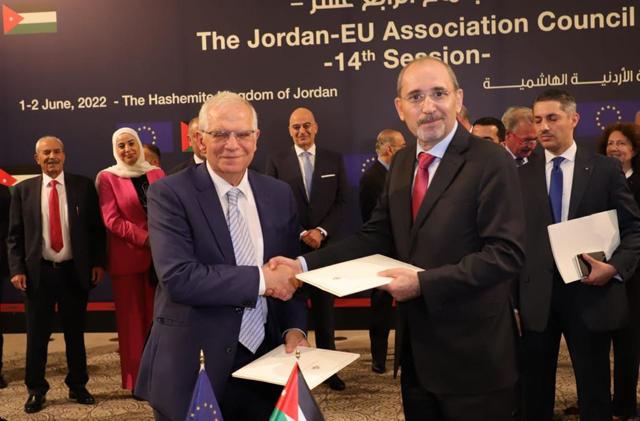You are here
14th Amman Security Colloquium kicks off
By Mays Ibrahim Mustafa - Nov 02,2022 - Last updated at Nov 02,2022
AMMAN — The 14th edition of the Amman Security Colloquium kicked off on Wednesday with the participation of Arab and international representatives.
The yearly event, which is organised by the Arab Institute for Security Studies (AISS) in cooperation with its local and international partners, aims to “discuss developments in the International scene and obtain a balanced view from credible sources to facilitate an accurate and efficient diagnosis of the situation”, according to AISS Director Ayman Khalil.
The colloquium aims to promote dialogue and seeks to arrive at conflict resolution methods, he said, noting that “this stems from Jordan’s commitment to promoting peace and stability regionally and internationally”.
The event featured five panel discussions in which speakers voiced their views on Europe’s relations with the Middle East as well as regional and international challenges, including the Palestinian situation and current circumstances in Iran.
Social media influencers also took part in the final panel discussion, which focused on the “security implications of social media”.
Deputising for Chairman of the Joint Chiefs of Staff of the Jordanian Armed Forces-Arab Army, Brigadier General Azzam Rawahneh described Amman as an “incubator for peace and security”, noting its contributions to peacemaking processes in the region throughout history.
He noted that this type of meeting, which brings together a large number of experts and representatives concerned with regional and global peace, stresses the pivotal importance of the issues and topics discussed “in ensuring a bright future for all people”.
European Union (EU) Special Representative for the Middle East Peace Process Sven Koopman spoke about the Middle East peace process and the link between stability and security.
He also noted the history of Jordan’s and the EU’s roles as sources “of stability and durability for the region”, noting that the Kingdom is an “anchor” to be relied on in “troubled times”.
He affirmed the EU’s stance as a proponent of the two-state solution and its significant role as the largest contributor to UNRWA, which supports Palestinian refugees in Jordan and elsewhere.
Hungary’s Minister of Foreign Affairs Peter Szijjarto discussed the global repercussions of the war in Ukraine.
He noted that although the war is “regional”, it has had global consequences, furthering security risks for various countries.
The war has created “the first ever real global crisis of energy supply” and caused a global food crisis, which has put an “additional burden” on vulnerable or already unstable regions, Szijjarto said in his speech.
Related Articles
AMMAN — Arab and International figures participating in the 13th Amman’s Security Colloquium in Amman on Wednesday stressed the importance o
AMMAN — Saudi and Iranian experts recently concluded a "security dialogue" session hosted by the Amman-based Arab Institute for Security Stu
DEAD SEA — The 14th session of the Jordan-EU Association Council witnessed the signing and adoption of a document on the priorities in Jorda

















